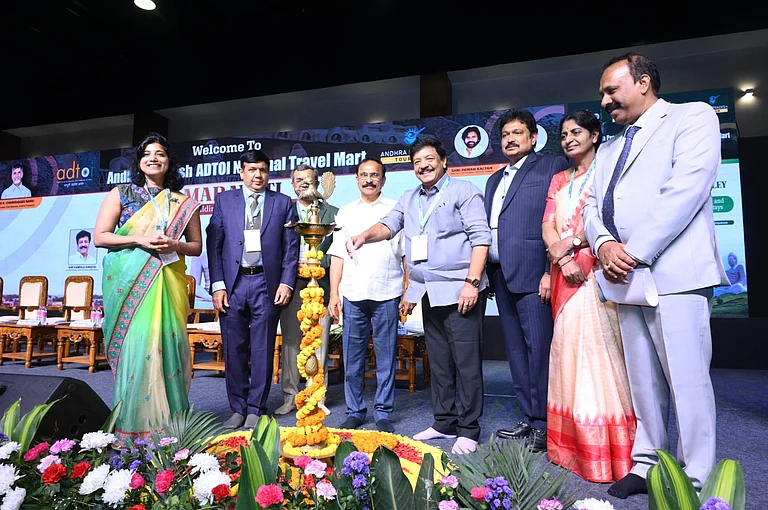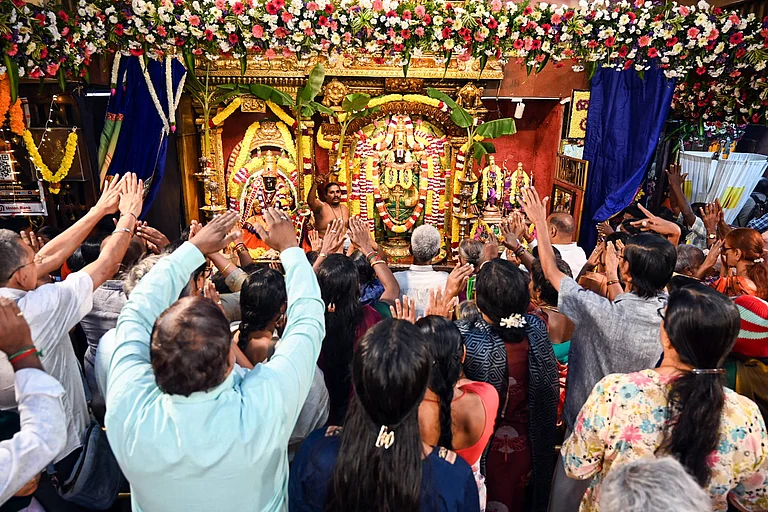
For hundreds of migrant workers from Bihar living in Andhra Pradesh, the approaching assembly elections back home are overshadowed by the daily struggle to make ends meet.
The first phase of voting for the 243-member Bihar Assembly commenced on Thursday, with the next phase scheduled for November 11.
These migrant laborers spend long hours working in hotels, poultry shops, construction sites, and other physically demanding jobs.
For hundreds of migrant workers from Bihar living in Andhra Pradesh, the approaching assembly elections back home are overshadowed by the daily struggle to make ends meet in the southern state.
The first phase of voting for the 243-member Bihar Assembly commenced on Thursday, with the next phase scheduled for November 11.
These migrant laborers spend long hours working in hotels, poultry shops, construction sites, and other physically demanding jobs. While their earnings are slightly higher than what they might earn in Bihar, their hearts remain tied to the villages they left behind.
Hareram Yadav, a resident of Guntur originally from Patna, observed how much Bihar has transformed.
“In 1990, youth migrated for jobs, but now opportunities have grown,” he said. He pointed out that Nalanda University is being developed with funds sanctioned by Prime Minister Narendra Modi.
Yadav also highlighted the growth of educational institutions and the provision of free electricity up to 200 units for villages. “Every household now receives clean water under the ‘Har Ghar Jal’ scheme as Bhagirathi river water reaches communities across Bihar,” he added, noting the visible changes in the state.
He emphasised that Nitish Kumar’s government should continue. “Only a stable government can ensure consistent growth. Frequent changes halt progress and delay welfare schemes,” said the Guntur-based migrant confidently.
Yadav also stressed the national significance of the Bihar elections. He suggested that if Kumar loses, the INDIA bloc could gain strength and attempt to bring Andhra Pradesh Chief Minister N. Chandrababu Naidu into its fold for a larger national role. “The opposition might even offer Naidu a prominent position, and if that happens, the Modi government could face instability, which is not good for the state or the country,” he added.
Vinod Gupta, originally from Patna and now settled in Vijayawada, said Bihar’s transport and security had improved significantly. “Earlier, travel was unsafe, but now women can move freely at night,” he recalled. Gupta also noted progress in roads, railways, airports, and overall law and order, observing a declining crime rate.
Similarly, Mohammed Nausaad, 35, from Rakhpura village in Madhubani district, has been living in Vijayawada for the past three years after shutting down his general store during the COVID-19 pandemic. He supports RJD leader Tejashwi Yadav in the upcoming elections.
“I had a small general store and tended sheep before the pandemic, but the lockdown ruined my business,” Nausaad told PTI. He is among roughly 100 internal migrants working in hotels in Vijayawada, now earning Rs 700 a day for 15 hours at a chicken center. In Bihar, the same work would have fetched Rs 400. He hopes that if Yadav wins, it may create more job opportunities back home.
For most migrants, life in Andhra Pradesh is a balance between higher wages and grueling work. Mohammad Irshad, 30, who has worked in Vijayawada for six years, said unemployment and corruption forced him to leave Bihar.
“We voted for Nitish Kumar, but he never cared for the poor. Even graduates are jobless and end up doing the same work as us here,” he said. Irshad earns Rs 500-600 per day but spends nearly half on rent and food. He added that even if he earned the same in Bihar, he would stay in Andhra Pradesh, as government jobs there require bribes, which he cannot afford.
Over the last 15 years, Andhra Pradesh has seen a surge of internal migration, with laborers arriving from Bihar, Uttar Pradesh, West Bengal, Assam, and other states. Many find work as hotel staff, painters, laborers, or in aquaculture units, among other occupations.
With PTI inputs



























